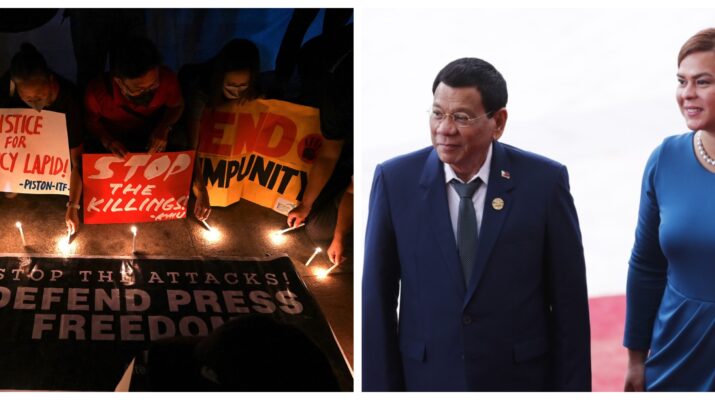In the wee hours of March 7, 2021, combined police and military elements forcibly entered the residence of activist couple Chai and Ariel Evangelista in Nasugbu, Batangas. State authorities had a differing account of what happened next, but the Evangelistas’ neighbors recounted the same events – several gunshots were heard and they could hear the couple screaming for help.
In its aftermath, their neighbors found the Evangelista couple both dead and their ten-year old son – traumatized – hiding under his bed. The boy’s father, Ariel, sustained four gunshot wounds while Chai was shot seven times.
The official police report states that both Chai and Ariel resisted arrest and fired shots at the arresting officers, forcing the authorities to fire back. However, that account contradicts the testimony of the couple’s neighbors including their young son, who was inside the house and witnessed his parents’ murder, and narrated that the police apprehended his parents and brought them to another location before gunshots were heard – resulting in their deaths.
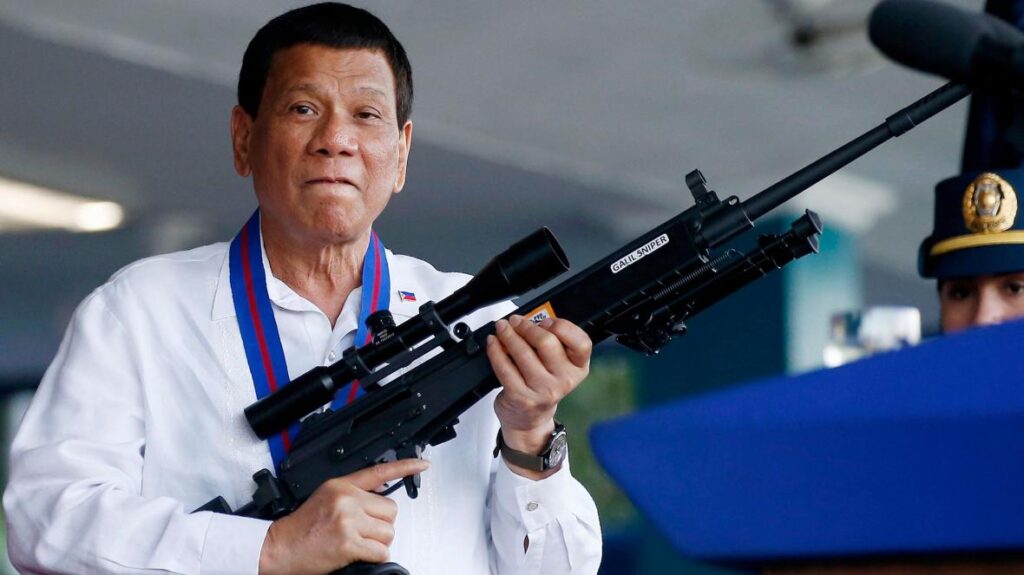
This operation occurred merely days after then-President Rodrigo Duterte ordered his military and police to “finish off” left-leaning elements in the country. Not only were the brutal actions of the military and police on those activist households tolerated by the Government, they had the blessing of the head-of-state himself.
Cases like these were well-documented under the Duterte regime. Throughout his six-year stay in office, activists were being targeted merely for dissenting against the state; human rights defenders, environmentalists, student activists, trade unionists, and even indigenous peoples’ leaders would be subjected to trumped-up charges, unjust arrests, and – like in the case of the Evangelista couple – to extrajudicial killings.
Similar to the Bloody Sunday killings and arrests, these attacks on activists were not just allowed by the Duterte government – they were encouraged. The former president famously declared in 2020 that he “[did] not care about human rights”, urging police to “shoot first” when apprehending suspects, even if they “don’t see a gun”.
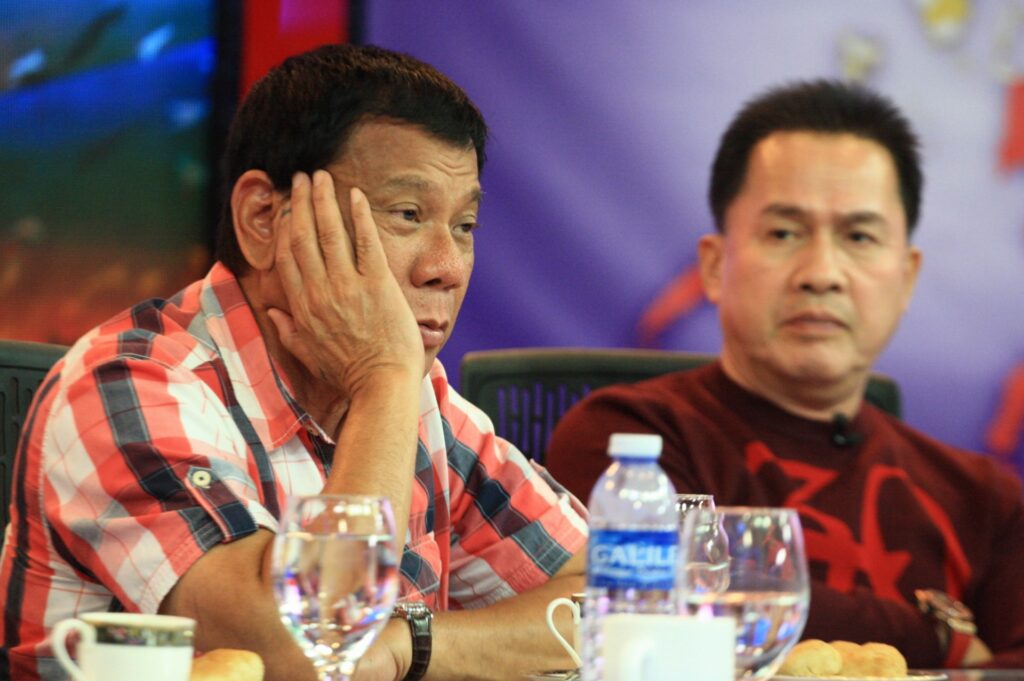
Hence why it is extremely hypocritical that the former president is now crying about “human rights violations” by the incumbent Marcos regime. Last June 1o, police raided the premises of cult leader and close Duterte ally, Apollo Quiboloy, in Davao City – Duterte’s bailiwick.
Quiboloy is a televangelist who established the so-called Kingdom of Jesus Christ (KOJC), which is widely-regarded as a cult. He also proclaims himself as the “Appointed Son of God”, and the “Owner of the Universe”; more famously, he became former President Duterte’s personal “spiritual advisor” and played a key role during the Duterte regime.
In 2021, the United States’ Department of Justice (DOJ) formally charged Quiboloy with child sex trafficking and human trafficking, for allegedly coercing young women and girls to have sexual intercourse with him under the threat of “eternal damnation”. He also used bogus charities he set-up in the United States to bring church members to the country, enslaving them to work as “personal assistants” whose job title included a requirement to have sex with the cult leader.
Quiboloy remains on the Federal Bureau of Investigation’s (FBI) most wanted list. He also faces separate charges in the Philippines of human trafficking and sexual abuse of a woman, which is what led to the police raid on his church’s compounds in early June.
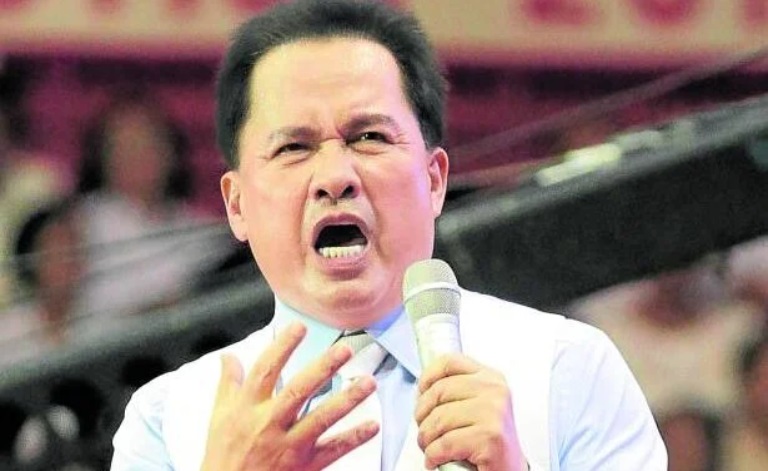
Former president Duterte condemned the raid on the KOJC compounds as using “excessive and unnecessary”. He also accused the cops of ignoring Quiboloy’s human rights in serving the arrest warrant, asking in his statement:
“Will this overkill be the trademark of this administration when dealing with individuals who are merely accused of committing a crime and have not been proven guilty beyond reasonable doubt? Will they exhibit the same lack of self-restraint they have shown toward critics of this administration when dealing with their supporters?”
Such pronouncements are laughable given Duterte’s attitude towards human rights when he was in office. What self-restraint was observed when police raided the residence of Ariel and Chair Evangelista? Neither of the two were charged with any cases prior to the police raid, but were summarily executed by state authorities.
No one was hurt when police raided Quiboloy’s compound, yet Duterte is adamant that the operation was an “overkill“.
At the start of his presidency, Duterte promised to kill as many as 100,000 people in his infamous “war on drugs”. He also vowed that their bodies will be thrown in the Manila Bay, causing the fishes there to “grow fat”.
The brutality of his drug war was demonstrated in the infamous killing of 17-year old, Kian de los Santos, who was executed by police operatives during an alleged anti-drug operation in 2017. Duterte’s cops alleged that the teenager was a drug mule who had “resisted arrest”, but eyewitness testimonies and corresponding CCTV footage in the vicinity showed that he was dragged out of his home in Caloocan City before being executed by the authorities.
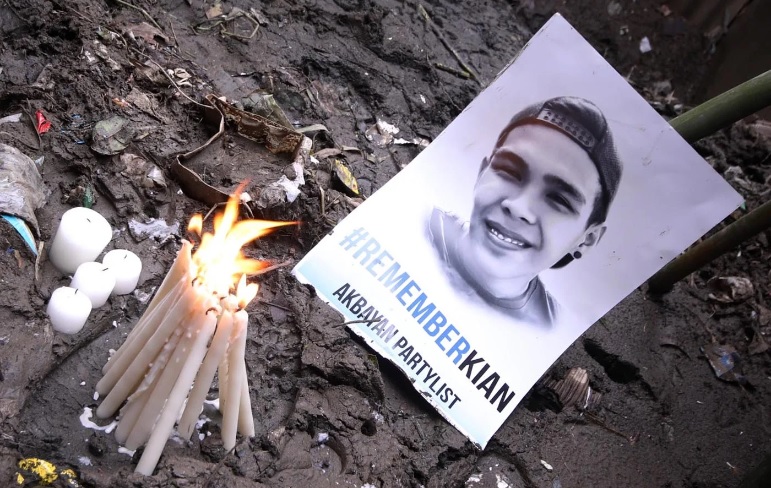
Even ignoring Delos Santos’ case, Duterte’s heavy-handed approach to dealing with drug users and petty drug dealers was an overkill in itself. To order police to commit murder instead of apprehending these low-level offenders enunciates the former president’s brutality and his abject disregard for due process and human rights.
Now a private citizen, Duterte is the one voicing his concerns about perceived police brutality, lack of due process, and violations of human rights. While it is premature to decide if such violations were committed by the current Marcos administration’s forces, the former president has no moral high ground to portray himself as an advocate for human rights given how much he contributed to the present culture of impunity that is pervasive in the Philippine military and police.
If Rodrigo Duterte had a sudden change of heart and truly believes in respecting human rights, he needs to hold himself accountable and face trial at the International Criminal Court (ICC) – where there is currently an investigation against him on charges of crimes against humanity. Otherwise, his pronouncements against the Marcos regime will be seen as hypocritical and empty rhetoric from one of the worst human rights abusers in the history of the world.

